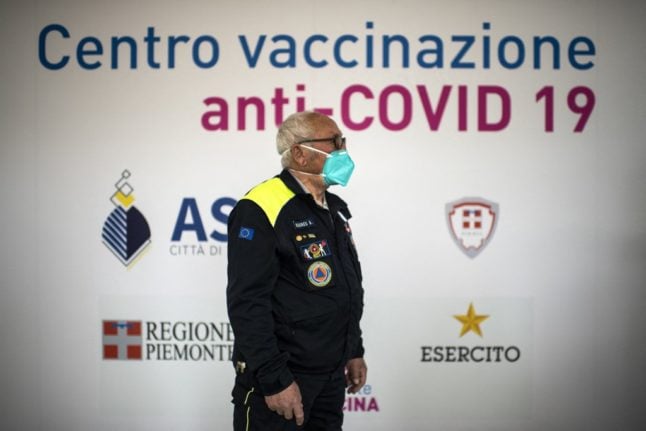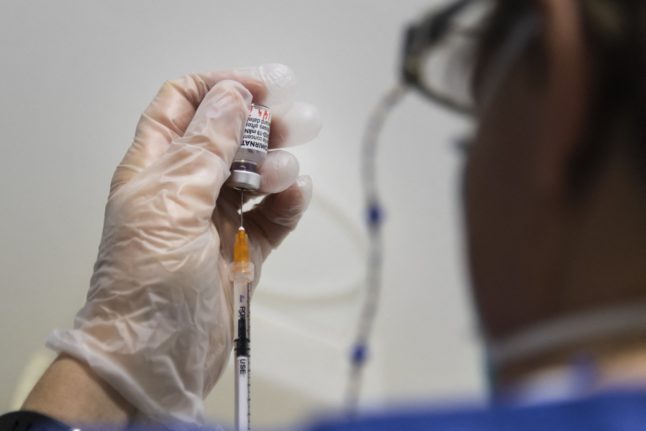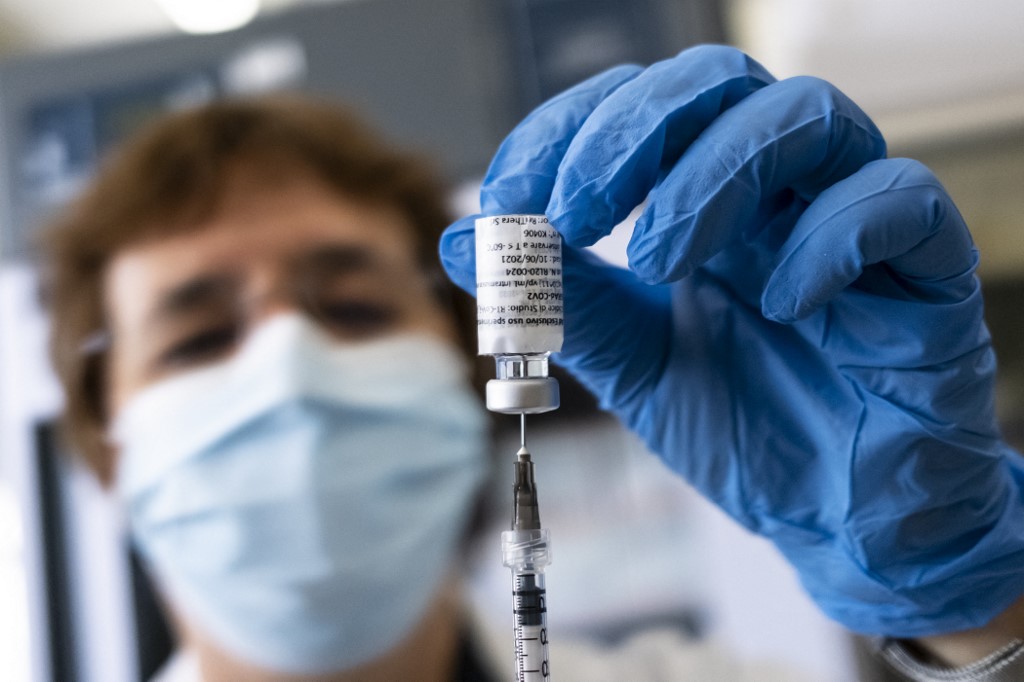The vaccination mandate for key workers first announced in November will be effective as of Wednesday December 15th.
After making vaccinations mandatory for all healthcare workers in April, the Italian government expanded the requirement to more groups in a decree signed into law on November 26th.
This includes health administrative staff, school teachers and administrative staff, military personnel, police and emergency services personnel.
READ ALSO: Italy set to extend Covid state of emergency into 2022
According to additional details published in a circular by Italy’s interior ministry on December 2nd, school staff who meet the criteria for mandatory shots include those in the national education system as well as those employed by private schools and children’s educational services. Vaccination is also a requirement for school managers.
All workers in Italy’s defence, security, emergency rescue, and juvenile and community justice sectors, as well as police, intelligence officers and prison guards, are obliged to undergo a full immunisation cycle.
Anyone in this category who refuses to get vaccinated will face sanctions, which can include suspension from work without pay.
Police officers who refuse to be vaccinated would also have to turn in their badge and any state-issued weapons and handcuffs.
Managers will have to check that staff comply with the new obligation. For those who can’t show proof of the vaccination, or a certificate to show why the injection isn’t needed or postponed, there will be “the immediate suspension of the right to carry out work, without disciplinary consequences and with the right to the preservation of the employment relationship”.
Fines of between €600 and €1,500 are imposed for those failing to follow the rules, while managers who don’t carry out checks for either public or private companies risk penalties of between €400 to €1,000, reported Italian newspaper Corriere della Sera.
The mandatory Covid-19 vaccination covers the entire vaccination cycle, including the obligation to get a third dose or booster shot, according to the November 26th decree.
The booster is available five months after the last dose, and must be given “within the validity period of the Covid-19 green certificates”, which means within nine months of the last shot.
Also from Wednesday, health and social care personnel who are already vaccinated will be required to get the booster dose.
The booster shot has been available to everyone in Italy aged 18 and over from December 1st.
Almost 86 percent of the eligible population over 12 years old has now completed the vaccination cycle in Italy, while some 12.7 million booster shots have been administered so far according to the latest official figures.




 Please whitelist us to continue reading.
Please whitelist us to continue reading.
Member comments